NIL
The Price Of Perfection
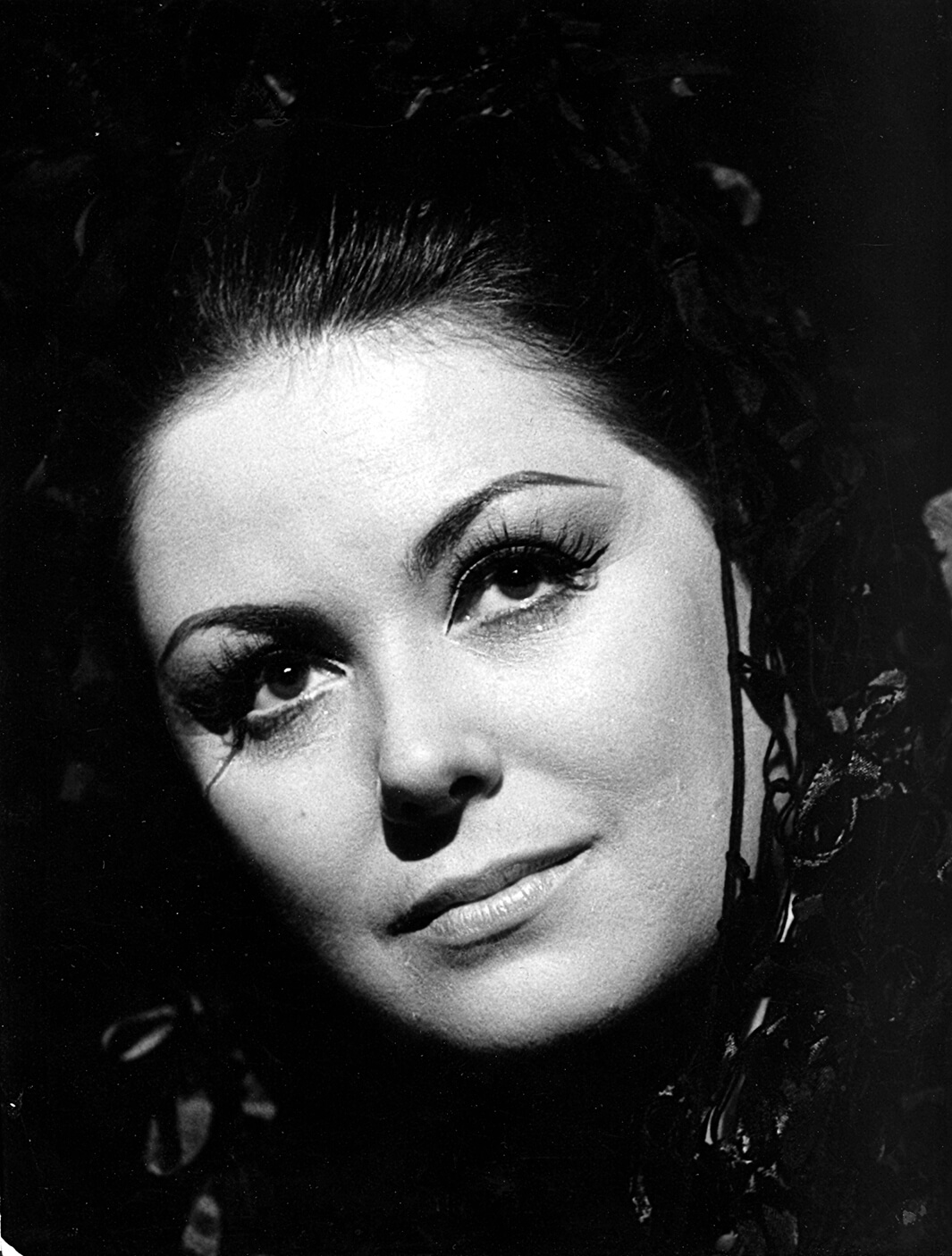

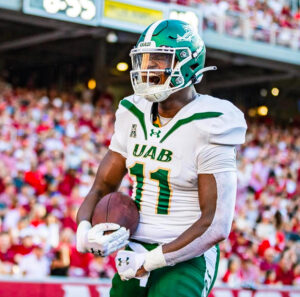
For Nichols, thriving under pressure does not mean ignoring mental well-being — it means learning how to manage it.
“There’s so much pressure in today’s world through social media (and) NIL,” Payne said. “Wanting to just look good, it’s a lot of pressure, and it becomes a challenge. For some guys … they thrive in that pressure, and then there’s a lot of guys who don’t.”
“I love my church home here in Oxford, and I have a girlfriend who’s really pushed me,” Nichols said. “It’s the idea that we weren’t ever promised anything to be easy. In this life, we will have trouble. ‘But take heart, I’ve overcome the world.’ That verse speaks to me — I’m expected to handle these things in a graceful manner because I have to deal with both winning and losing expectations.”
In July 2021, the NCAA lifted its long-standing restrictions on its athletes’ ability to profit based on their NIL. For the first time, athletes could earn money from their personal brands through sponsorships, endorsements and partnerships while still competing at the collegiate level.
Recently, the NCAA Committee on Competitive Safeguards and Medical Aspects of Sports approved new mental health resources aimed at addressing the evolving pressures student athletes face. These resources include expanded teletherapy options, increased monitoring of social media harassment, mental health services at major sporting events and enhanced educational opportunities to equip athletes with coping strategies.
While these resources provide support, managing the mental strain of college athletics ultimately falls on the individual athlete.
“At the end of the day, you need to think about the thing between your ears. If I’m not okay up there, then nothing else is gonna be okay,” Grace said.
At Ole Miss, the athletics department offers counseling and sport psychology services, providing confidential one-on-one sessions for athletes with licensed mental health professionals. These sessions address a range of issues, including injury recovery, disordered eating, identity concerns and performance-related challenges.
After Ole Miss Baseball won the College World Series in 2022, Nichols learned to manage the pressure by utilizing mental health resources available to Ole Miss athletes and by relying on his Christian faith.
The weight of the game is not just in the pads or the playbook. It lingers in the comment sections of Instagram posts, in the silence of a dorm room after a tough loss and in the long stretches of highway between home and the next playing field. Student-athletes need an escape — however brief — from the expectations placed on them.
The pressure Payne describes is not just based on personal experience; researchers have found similar trends.
Without a standardized framework, athletes face confusion over compliance, contract terms and recruiting advantages tied to NIL. The pressure to build a marketable brand, combined with academic and athletic demands, has added another layer of stress.
In response to these challenges, the NCAA has implemented reforms to expand mental health resources for student-athletes. Many universities, including Ole Miss, have increased access to sports psychologists and mental health programs to help athletes manage the added weight of NIL.
Like Payne, Nichols finds strength in his support system, drawing from his faith and personal relationships.
“I do think NIL adds an extra layer to what student-athletes have to manage,” Debro said. “Now you’ve added another component to what they were already doing. Someone is now requiring them to do something in order to receive money.”
Writing for Psychology Today, sports psychologist Tess Kilwein found that the pressure to maintain a public image fosters feelings of inadequacy and unhealthy comparisons among teammates.
While NIL opportunities have created financial benefits for many athletes, they have also introduced new challenges. The lack of universal and consistent regulations has led to disparities in the outcomes NIL can produce for student athletes.
“If you let the expectations eat you up, then you’re kind of toast from the beginning,” Mason Nichols said.
“I value talking to my loved ones as much as possible,” Payne said. “Hearing their words and letting them motivate me helps keep me grounded and focused.”
“I was struggling (mentally) after the national championship,” Nichols said. “I was like, how do I deal with these expectations for myself and for the team? They say baseball is 90% mental — well I wanted to get that right.”
While Nichols has leaned on professional support, Payne finds balance in personal activities.
The William Magee Institute for Student Wellbeing focuses on research and education related to substance use and holistic wellness.
As a senior pitcher for the Ole Miss Baseball team, an honors student and a biology major, Mason Nichols understands high expectations. However, with changes in the name, image and likeness (NIL) rules, those expectations have only grown. He is now not just a student athlete; he is a businessperson.
“I went and talked to the mental health folks for a competitive advantage. I think a lot of athletes do that, and there’s plenty of resources for things that aren’t just performance-related. But the expectations were a part of it,” Nichols explained.
Tight end Dallas Payne from Bay St. Louis, Miss., has also had to adjust to this new reality. After playing football for the University of Alabama-Birmingham, Payne transferred to Florida International University, which meant stepping into a new, more challenging environment.
The Ole Miss Counseling Center offers walk-in services and a 24/7 crisis helpline, ensuring immediate support is available to all students, not just athletes.
At Ole Miss, Ane Debro, general counsel for Ole Miss Athletics, acknowledges the added mental strain NIL brings. Debro provides legal guidance on compliance, contracts and regulations and helps educate athletes on the complexities of NIL.
Rashard Grace, a senior baseball player at Southern University in Baton Rouge, La., is originally from Madison, Miss. He summed up the importance of mental wellness for student-athletes.
“I think just learning different hobbies outside of school and sports is key … those are your two main priorities as an athlete: academics and then practice, workouts, games,” Payne said. “So for me, managing and getting away from those two is just by doing little simple things. A lot of guys I know play video games. I think that’s also a way for athletes to escape from football and academics.”
“There’s always room to improve. … There needs to be an element of gratitude, though, from the student-athlete side right now,” Nichols said “We get more stuff than any student-athlete population has ever gotten.”
For Payne, hobbies like gaming and listening to music are essential for mental wellness. He also emphasized the importance of staying connected to others.
NIL
Georgia seeks over $300,000 in damages from Damon Wilson after transfer to Missouri
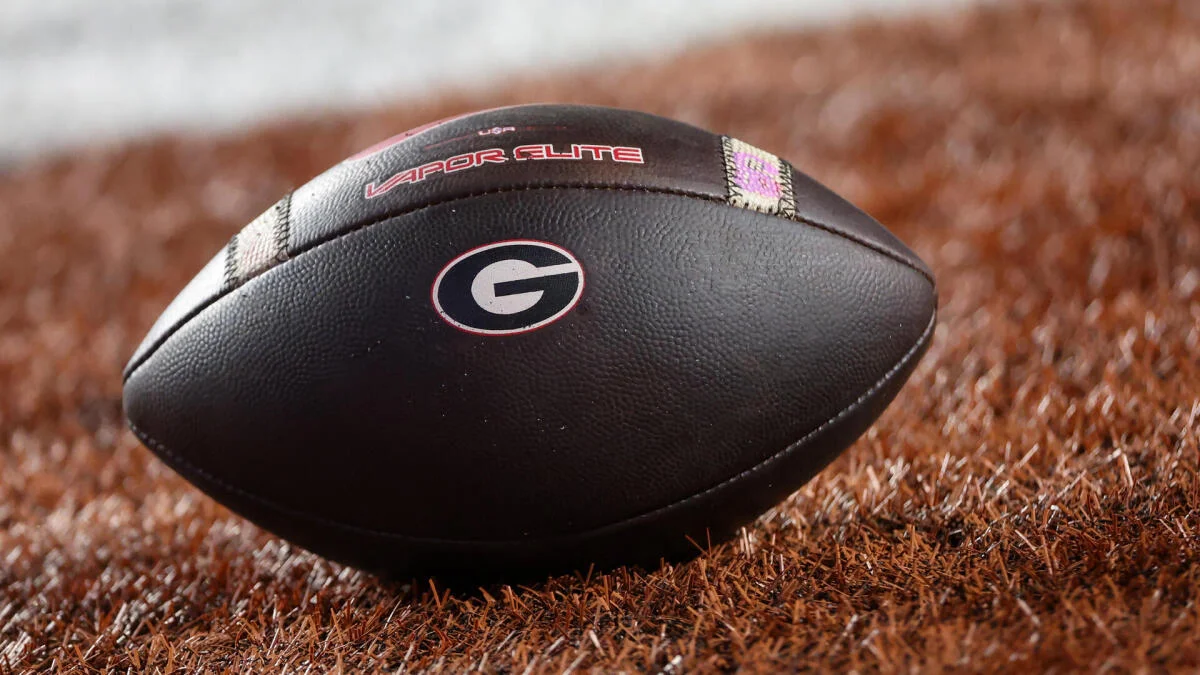
The Georgia athletic department seeks $390,000 in damages from former Bulldogs outside linebacker Damon Wilson II after his transfer last offseason to Missouri. Citing a clause in Wilson’s NIL contract, Georgia asked a judge to force Wilson to enter arbitration to settle the dispute. Legal documents show that Wilson was served a court summons last week in Missouri.
If the judge sides with Georgia, this could be a landmark case in college athletics. Georgia and other schools include clauses in their NIL contracts that equate to buyouts, and a ruling in the Bulldogs’ favor would set the precedent that such clauses are legally enforceable. Player buyouts could, in turn, become even more commonplace as schools seek to protect themselves financially from the perils of the transfer portal.
Wilson, a former top-50 recruit, spent the first two years of his college career at Georgia and developed into one of the most promising young edge rushers in the SEC. He inked a new deal with Georgia’s NIL collective in December 2024 but entered the transfer portal and moved to Missouri weeks later in January 2025.
While Georgia paid Wilson $30,000 under the terms of the new deal before his departure, the athletic department says Wilson owed a $390,000 lump sum within 30 days of his exit.
The contract was a 14-month agreement worth $500,000, which was set to be paid in monthly $30,000 increments. Georgia would have also paid Wilson two $40,000 retention bonuses at the end of the NCAA transfer portal windows. The exit clause states that Wilson would owe a lump-sum payment worth the total he would have received if he remained with the program through the duration of the contract.
The NIL collective signed the rights to the damages over to the athletic department on July 1.
“When the University of Georgia Athletic Association enters binding agreements with student-athletes, we honor our commitments and expect student-athletes to do the same,” Georgia spokesperson Steven Drummond said to ESPN.
Wilson was the No. 3 overall prospect and top-ranked edge rusher in the 2025 transfer portal cycle, per 247Sports. He delivered on expectations at Missouri this season with a team-high nine sacks and an interception.
This is among the first instances of a school publicly seeking NIL damages from a former player over a breach of contract. Arkansas’ NIL collective hired an attorney in April to pursue and enforce a buyout clause in former Razorbacks quarterback Madden Iamaleava’s agreement in what was, at the time, an unprecedented move. The Arkansas Edge collective also sought buyout money from former receiver Dazmin James.
NIL
Georgia seeks $390K from DE Damon Wilson for transfer damages
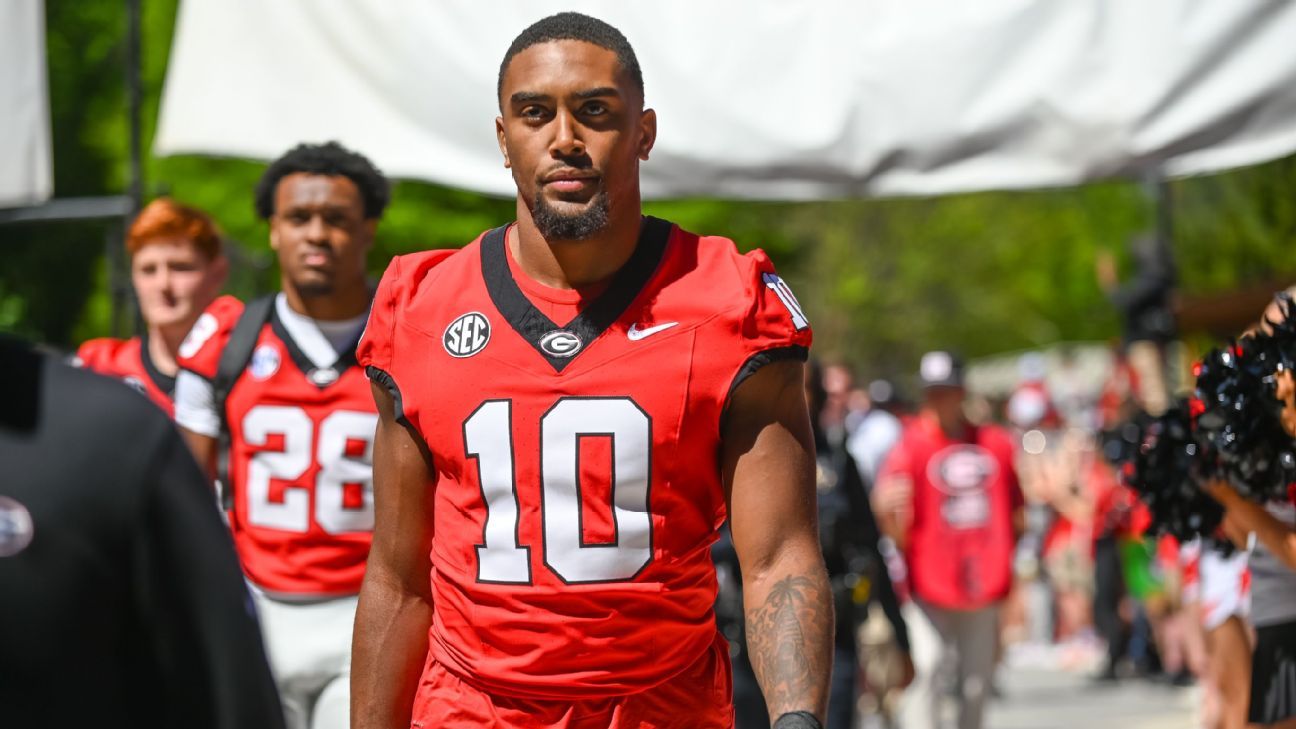
Georgia’s athletic department is headed to court to try to obtain $390,000 in damages from a former standout defensive end who transferred from the school after his sophomore season in a potentially precedent-setting case.
The Bulldogs have asked a judge to force former defensive end Damon Wilson, currently the top pass rusher on Missouri’s defensive line, to enter into arbitration to settle a clause in his former contract that serves effectively as a buyout fee for exiting his deal early. Wilson played for Georgia as a freshman and sophomore before transferring to Missouri in January, two weeks after signing a new deal with Georgia’s Classic City Collective.
Many schools and collectives have started to include “liquidated-damages” clauses in their contracts with athletes to protect their investment in players and deter transfers. Georgia is one of the first programs to publicly try to enforce the clause by filing suit against a player.
“When the University of Georgia Athletic Association enters binding agreements with student-athletes, we honor our commitments and expect student-athletes to do the same,” athletics spokesman Steven Drummond said in a statement to ESPN on Friday.
Multiple attempts to reach Wilson for comment through family members Friday were unsuccessful. Wilson was served last week in Missouri with a summons to appear in court, according to legal documents.
The Bulldogs paid Wilson a total of $30,000 from the disputed contract. Because of the way the deal was crafted, Georgia says Wilson owed it $390,000 in a lump sum within 30 days of his decision to leave the team. Drummond declined to comment when asked why the damages being sought are much higher than the amount Wilson was paid.
Wilson signed a term sheet with Classic City Collective in December 2024, shortly before Georgia lost in a quarterfinal playoff game to Notre Dame to end his sophomore season. The 14-month contract — which was attached to Georgia’s legal filing — was worth $500,000 to be distributed in monthly payments of $30,000 with two additional $40,000 bonus payments that would be paid shortly after the NCAA transfer portal windows closed.
The deal states that if Wilson withdrew from the Georgia team or entered the transfer portal he would owe the collective a lump-sum payment equal to the rest of the money he’d have received had he stayed for the length of the contract. (The two bonus payments apparently were not included in the damages calculation.) Classic City signed over the rights to those damages to Georgia’s athletic department July 1 when many schools took over player payments from their collectives.
Georgia’s filing claims Wilson received his first $30,000 payment Dec. 24, 2024. Less than two weeks later, he declared his plans to transfer.
Legal experts say Georgia’s attorneys will have to convince an arbitrator that $390,000 in damages is a reasonable assessment of the harm the athletic department suffered due to Wilson’s departure. Liquidated damages are not legally allowed to be used as punishment or primarily as an incentive to keep someone from breaking a contract.
In one of the only other examples of a school trying to enforce a similar clause, Arkansas’ NIL collective filed a complaint in the spring against quarterback Madden Iamaleava and wide receiver Dazmin James after both players transferred out of the program. It’s not clear if the Iamaleava case has been resolved. James’ attorney, Darren Heitner, told ESPN that the wide receiver “stood his ground” and that Arkansas has not moved forward to date with further attempts to collect damages.
“To me, [these clauses] are clearly penalty provisions masquerading as liquidated damages,” Heitner said.
Several attorneys who have reviewed athlete NIL contracts for ESPN in the past say they believe schools and their collectives are using liquidated-damages clauses in bad faith to punish players who break their contract early.
Schools and collectives have not used the negotiated buyout clauses that typically appear in coaching contracts for athletes because the teams aren’t technically paying them to play their sport. Instead, the school pays players for the right to use their name, image and likeness in promotional material. Paying for play could make it more likely that courts deem athletes to be employees, which almost all college sports leaders want to avoid.
Wilson’s case could help set a precedent on whether liquidated-damages clauses will serve as an effective, defensible substitute for more traditional buyout fees.
NIL
When it comes to college football recruiting, Black mothers might just determine the future of the sport
It’s early December and ‘tis the season for college recruiters to lay their football mack all the way down.
The NCAA early signing period, when many high school athletes commit to where they’ll play at the next level, ends today, and it’ll soon be followed by a contact period. That’s when college coaches and staff can reach out directly to athletes and their families urging, cajoling, perhaps even promising riches to young prospects, trying to convince them to bring their ball-playing talents to their college or university.
And to win at that game, recruiters often single one person out for concentrated attention: Black mothers.
It’s a tacitly understood feature of student-athlete recruitment that’s crucial to the process but rarely acknowledged, studied or celebrated publicly. While the role of every mom in recruitment decisions is intuitively important, it’s Black mothers specifically who the entire game of football might just hinge on, said Tracie Canada, whose book Tackling the Everyday: Race and Nation in Big-Time College Football has a chapter that examines the centrality of Black mothers to the sport.
“I think plenty of people write about coaches. I think plenty of people write about fathers. I think plenty of people write about the men that surround football because that is the expectation,” said Canada, a professor of cultural anthropology, gender and sexuality, and feminist studies at Duke University.
“And so I also think that it is important to say that it is not only men that are allowing this sport to continue. Mothers not only give bodies to the sport, they’re giving birth to these players. They are also caring for them in a way that is different from the other people around them.”
Black mothers perform a type of specialized labor when it comes to their football-playing sons, giving them outsized influence on decisions about football and life. That labor involves care and kinship around “their holistic lives rather than just their lives as football players,” Canada said. It includes helping them navigate a world beyond the football field in large Black and brown bodies that are often reflexively feared and historically politicized.
Upwards of 40 percent of all NCAA college football players are Black, so the numbers alone make Black women at least partial gatekeepers of the sport. And from concerns about CTE (chronic traumatic encephalopathy) to NIL (name, image, and likeness) to the backlashes over DEI (diversity, equity, and inclusion), Black moms are taking notes.
For the third installment of our Recruiting While Black series, Canada spoke with Andscape about the centrality of Black mothers in football recruitment and their broader impact on the sport.
This interview has been edited for length and clarity.
In Tackling the Everyday, you’ve said your chapter on Black mothers has really found an audience and resonated deeply with people. Talk about what led you to that chapter and that line of inquiry.
The fact that this is the chapter in my book that people ask me about the most, to me, is a sign I’m picking up on something that people are so aware of, but they don’t often see it. It’s not in literature. It’s not usually given space. I’m specifically interested in Black football players, and the players themselves are consistently referencing their moms, when there’s no reason to talk about them. This is referencing how outsized they are in their lives, just how big these figures are to them in the decisions that they’re making in their daily behaviors, in their interactions with people around them, and it has always been clear to me that mothers are an important part of this story.
Because I’m a Black woman anthropologist, and an ethnographer doing this work, and because I am a Black feminist, I’m attuned to particular relationships. I’m attuned thinking about Black women and how their care and kinship align in a particular space, and these aren’t usually the analytics that we think about in football.
So in what specific or outsized ways did you notice that care showing up?
If you go to a football game, you can always tell whose kid belongs to who because the moms are very loud, they’re supportive of their son in a particular way, even if they’re supportive of the entire team. There might be a nickname that they yell out. They might be saying, “That’s my son!” They’re the ones that are wearing the T-shirts that might have his face on it, that might have his number on it. They bring the signs, they have the cowbells in college. They’re the ones who organize who’s going to the game this week. They’re the ones doing that labor.
Then as I’m spending time with these Black players, their moms were always brought up, and this was not something that I was asking about. There were players who called their mom every day. There was a player who was super proud that his mom bought all of his clothes because she knew what he liked to wear, but also knew where she could shop for him, given his size. In my book, the chapter title, “The Year My Mom Was Born,” came from an offhand comment that somebody made about his jersey number making him feel close to his mom. So I’m seeing this physical presence in their son’s lives alongside a constant reference from players.
The other thing that I think is relevant is that people assume that the players I was spending time with were from single-parent homes. These are mothers who have been married for a long time, often to the fathers of their children and I always have to say, “These are not single moms that have to do everything on their own.” These sons have very present fathers in their lives, too. But I was noticing there’s a different relationship that comes from moms of football players than fathers of football players. Fathers seemed to be very invested in the football player himself — of how well he did, of how he can improve, of what’s physically going on during a game. Players will often reference their dads as the reason that they started playing in the first place.
The relationship to football often comes through their dads, but I think that they are sustained by their moms. The moms are the ones who are doing a certain type of labor so that the player feels supported. And the moms also seem to be invested in them as people. There’s something in how they are asking about their holistic lives rather than just their lives as football players.
I think that that’s important across the board. But the reason why the focus is specifically on Black moms is because demographically Black players are overrepresented in football. Especially if we look at a college campus versus a college football team, Black men are severely overrepresented. So for a lot of these guys, the women that are around are going to be Black women.
You referenced the quote,”If 10 percent of mothers in this country would begin to perceive football as a dangerous sport, that is the end of football,” attributed to an unnamed NFL doctor in response to the work of Dr. Bennet Omalu (a forensic pathologist whose discovery of Chronic Traumatic Encephalopathy caused wholesale changes in concussion protocols).
How should we think of that quote in terms of the ways Black women guide and care for their football-playing sons?
The way that I write about it, if I’m taking that quote seriously, is that if moms didn’t buy into the sport, the sport would go away. So that means Black women are playing a significant and really important role here.
There are the ones who say, “I will not allow my son to play at this school, to play for this coach, to be in this division if I don’t feel OK with where he is. Even if he wants to. If I don’t feel it, you cannot go there. I will not allow that to happen.” And I think that these moms recognize something about how important it is that these are young Black men who live in particular bodies. It’s a body that’s usually big and strong, visibly so, in a way that is transgressive and is often outside of the norm. And so these moms are also [thinking]: My son is in danger on this field, but my son is also in danger in the real world outside of it because of the body that he lives in, given this anti-Black world that we exist in.
The way that I analyze it is that moms are the ones that clock all of these angles for their Black sons in a way that doesn’t seem to be taken into account as obviously by other people.
Have football programs, institutions and administrations responded to or shown that they recognize the role of mothers and Black mothers, specifically? And if so, what are some examples of that?
I remember one of the first, very early on conversations I had with one of the coaches. It was camp time, the semester hadn’t started yet, and one of the things he said was about how they recruit moms, and how if they recruit a player, the mom can be a great spokesperson for the program. She can attract other moms to get on board, and they can use networks of moms to attract players.
At the time I was doing research, all of these NFL safety clinics were also happening, and these were different NFL teams inviting moms of young players. Not college, high school and lower. It wasn’t a parents’ clinic, it wasn’t even just an NFL clinic, it was specifically the NFL Moms Safety Clinic. What happens in football, but probably across sports, is that the professional league is making certain decisions and things usually trickle down to the lower levels. The NFL affects college, which is going to affect high school, which is going to affect Pee Wee, so I thought it was really interesting that the NFL was specifically marketing to moms and kind of putting its brand name behind the importance of this particular group of people.
These weren’t small events. For the two that I went to, you’ve got like 200 moms there and most of them are Black women.
So my question is, with all the structural changes going on in college football, like NIL and divisive political issues facing the nation, do you think we’ll see a significant recruiting impact from Black mothers’ advice and influence and if so, when?
Sports as an arena is notorious for attempting to claim that it is not political. Fans come from all different backgrounds and all different walks of life, but they come together to support a team. The assumption is the same for the players and the coaches. It’s this idea that the team, and what we’re doing here, is the most important thing right now, and we don’t care about all the other stuff that’s going on. That the playing field is completely divorced from the real world outside of it. As I’m sure you can tell, I don’t agree with that. I’m someone who talks about how race actually matters in this space.
One part of me would say 2025 is actually not all that different because these concerns have always been there for Black people. We are seeing things that are familiar because these things happen over and over again. What does it mean to walk through the world in a particular body? What does it mean to be an athlete who is stereotyped as someone who is only useful for what their body can do. These things are happening now, but they have also happened before, and will probably happen in the future.
If you’re talking about recruiting, what I imagine might be going on in this particular moment is probably part of the conversation that families are having. When you’re playing the sport of football, there is always calculus, an algorithm that is not specified, but there are a lot of factors at play here and how am I going to make the best educated, safe, hope-for-success decision, right? Football is already a dangerous sport, so part of the risk assessment is like should I play or should I not? What is my risk if I do it and what is my risk if I don’t? Do I play in this state? Do I play for this coach? Do I push for this position?
Part of that conversation could be that this state as a whole is doing X, Y, and Z [politically], but I have a good chance of going pro if I’m with this coach, at this university, with these other people there. Or it might be that because of the state that this university is located in, is it actually riskier for me to be there because of who I am, and because my options outside of sport are much more limited?
I’m very curious about how this moment is going to play out over the next five years, given everything that has happened politically, socially, culturally in this country in the past five years. The landscape of college sports has changed dramatically in the last five years when coaches and institutions thought it was important to take [performative] stands on issues. Taking a stand is always a recruiting and retention tactic to convince players to stay, to convince players to come.
What are Black mothers talking about in terms of their sons’ safety, on and off the field, and how do you think the impact of these conversations will be felt, especially on the rosters of schools in states where college football is most revered?
I’m spending time with high school moms right now, so it is interesting to see that what they are saying is not much different than all the things college moms had top of mind. It is about injuries. It’s about is my kid going to be taken care of? It’s about what kind of man is that coach and what kind of man is he going to encourage my son to be, right?
Black mothers are still going to be central to those decisions. Black moms are still paying attention. They’re taking notes. They are remembering these offhand comments that were made. They’re watching the news. They’re aware, but they’re also aware of what’s happening at their kids’ high school. They’re aware of what’s happening at the colleges that they’re looking at. They’re aware of what’s happening with the coaches at both of these places and what’s happening in the states where these schools are located, and how far away their kids are going to be away from them. These dynamics are always being taken into account by moms as they’re supporting their sons as they make these decisions about their future.
NIL
2026 football schedule change announced
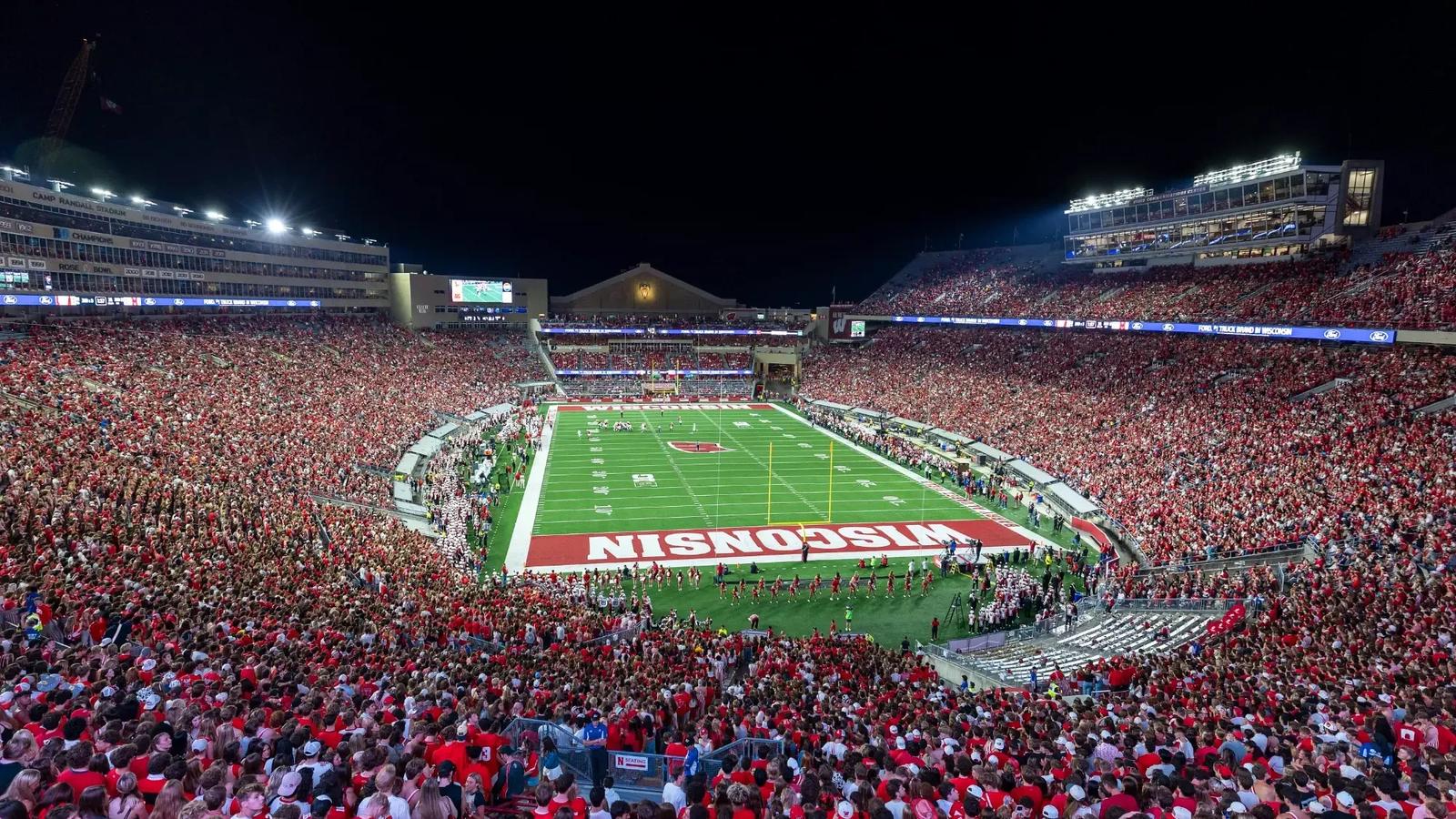
NIL
Major college football program jumps 96 spots in updated recruiting rankings
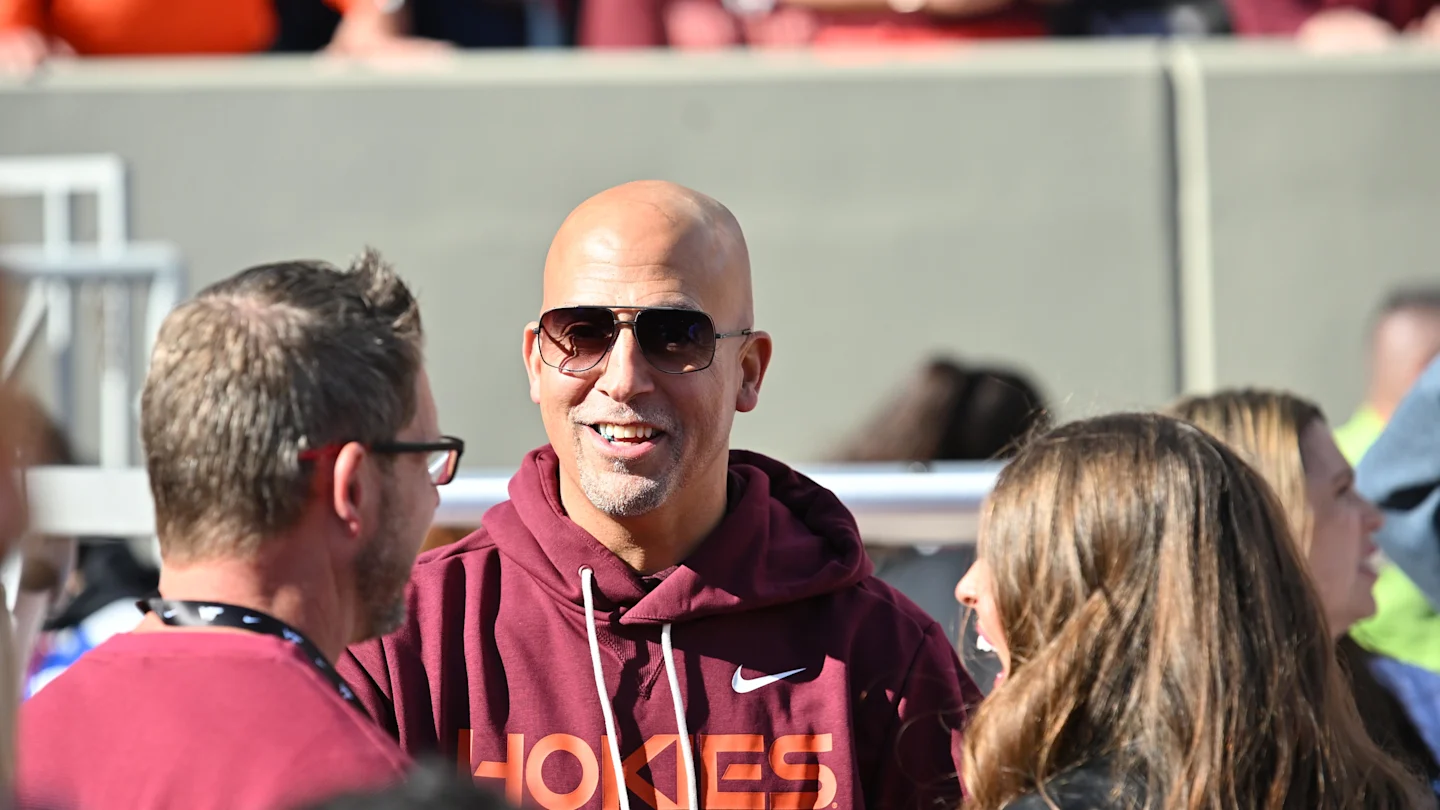
Blacksburg’s recruiting thermometer spiked within days of James Franklin’s arrival.
The former Penn State coach was introduced by Virginia Tech on November 17 after a 12-season run with the Nittany Lions that saw him win a Big Ten title, appear in the 2024 College Football Playoff semifinal, and leave with a 128-60 overall record.
In just over two weeks since taking the Hokies job, Franklin has already translated relationships and urgency into rapid sign-and-flip activity that dramatically improved the program’s industry rankings.
Industry trackers pegged Virginia Tech outside the top 100 (No. 121) on November 25; by Tuesday, the program had climbed up 96 spots to No. 25 after a string of commitments and flips, several of them former Penn State pledges.
Over a short window, Franklin and his staff flipped multiple four-star prospects, adding playmakers on both lines and at skill positions.
Some of the biggest moves include flipping six four-star recruits — LB Terry Wiggins, QB Troy Huhn, TE Pierce Petersohn, WR Davion Brown, OT Marlen Bright, and RB Messiah Mickens — all of whom decommitted from Penn State after Franklin’s firing.
That volume, not just a single headline recruit, is what pushed the Hokies up industry leaderboards.

Franklin’s early, unceremonious exit at 3-3 hasn’t disrupted his recruiting relationships.
For Virginia Tech, after a 3-9 season and a mid-season coaching change, the immediate priority was reestablishing connections and winning back recruits.
Franklin’s staff accomplished that quickly, which gives athletic directors, donors, and fans visible proof the program can compete for top regional talent again.
Virginia Tech’s 2026 schedule features home games against VMI, Old Dominion, and James Madison, along with a road test at Maryland before an ACC slate that features Clemson, Miami, NC State, Georgia Tech, Pittsburgh, Boston College, California, and Virginia.
If victories don’t come early, the recruiting spike risks fading before Franklin’s rebuild fully takes shape.
Read More at College Football HQ
- Nick Saban sends strong message on major SEC college football coach after taking new job
- $11.2 million college football coach signs extension amid departure rumors
- $29.6 million college football coach reportedly retires after seven seasons
- Major college football program set to make 29th straight bowl game appearance
NIL
College Football TV Ratings: Top 10 most-watched games of Week 14
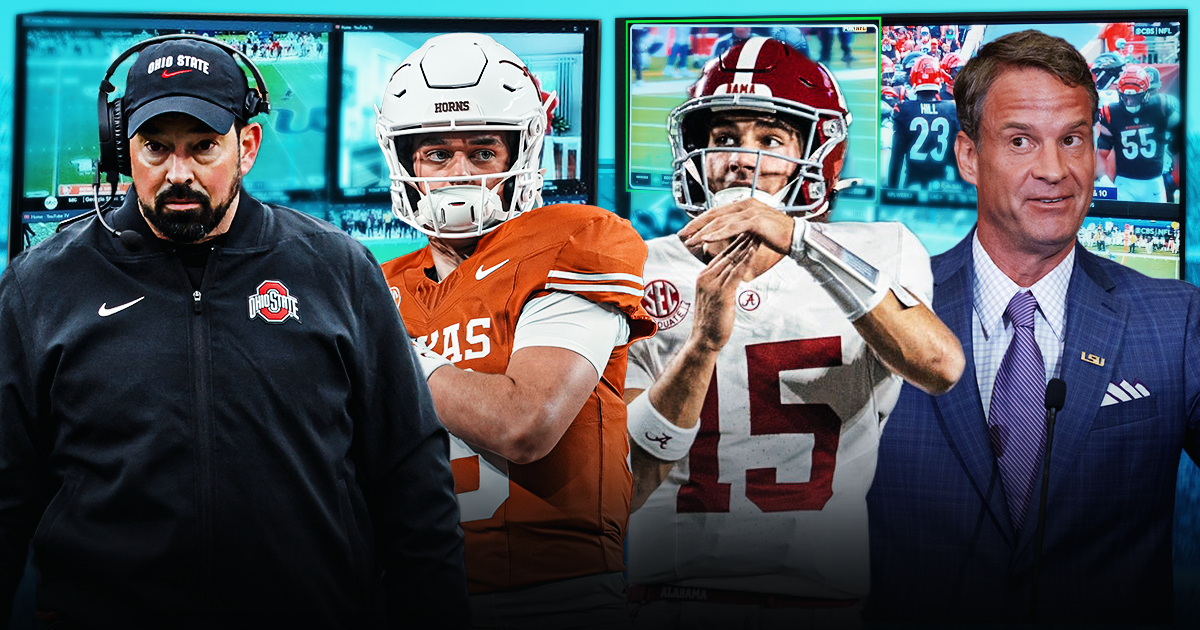
The final week of the regular season delivered plenty of rivalry flare. It was also an opportunity for networks to score more TV ratings wins to close out the college football campaign, and On3 is breaking down the most-watched games of Week 14.
The Week 14 slate began on Thanksgiving with Navy vs. Memphis before a jam-packed Black Friday slate of SEC rivalry games. From there, Saturday had more marquee matchups, headlined by Michigan vs. Ohio State in the early window, which became the most-watched college football game of the 2025 season.
SUBSCRIBE to the On3 NIL and Sports Business Newsletter
On3 obtained Nielsen Big Data + Panel ratings data for the most-watched rivalry games of Week 14. Here is the full breakdown of the week’s college football TV ratings.
Note: SEC Network, ACC Network and CBS Sports Network do not pay for Nielsen to measure viewership.
Michigan vs. Ohio State
Date/Time: Nov. 29, Noon ET
Channel: FOX
Viewers: 18.4 million
The Game was once again a big draw in Week 14 and became the most-watched game of the season. Ohio State’s victory over Michigan averaged 18.4 million viewers on FOX to lead the charge as the Buckeyes ended their losing streak against the Wolverines.
Texas vs. Texas A&M
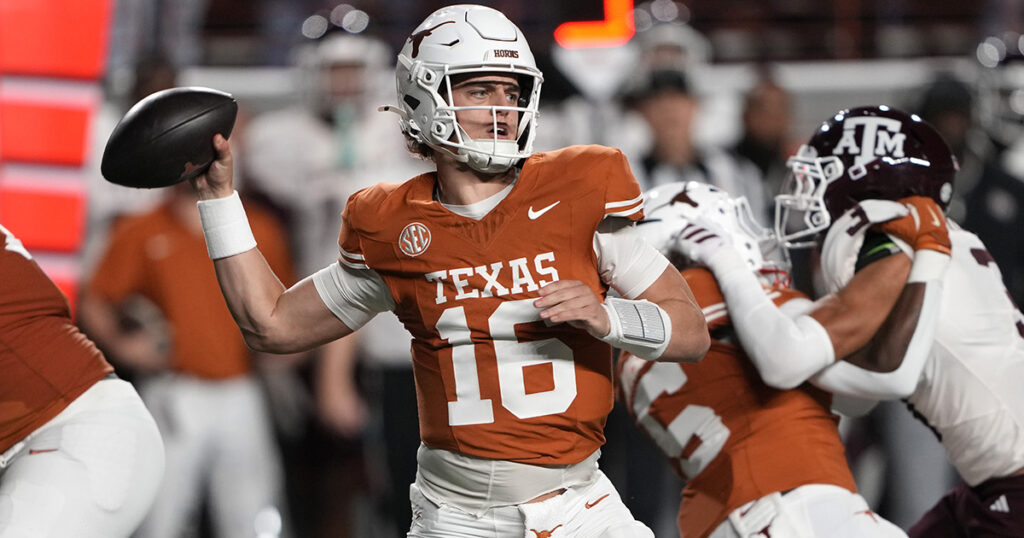
Date/Time: Nov. 28, 7:30 p.m. ET
Channel: ABC
Viewers: 13.0 million
The Lone Star Showdown had plenty at stake as Texas A&M headed to Texas. The Longhorns came away victorious, though, pulling off the upset in primetime on Black Friday in front of 13 million viewers on ABC.
Alabama vs. Auburn
Date/Time: Nov. 29, 7:30 p.m. ET
Channel: ABC
Viewers: 11.3 million
One of college football’s most storied rivalries returned to Jordan-Hare Stadium and it lived up to the billing. Alabama nearly saw a commanding lead disappear before eventually fighting off Auburn in the Iron Bowl, which drew 11.3 million viewers for ABC’s Saturday night game.
Georgia vs. Georgia Tech
Date/Time: Nov. 28, 3:30 p.m. ET
Channel: ABC
Viewers: 8.7 million
The Clean, Old Fashioned Hate game saw two top teams in their respective conferences square off. Ultimately, Georgia rose to the occasion in a big way, handling Georgia Tech with ease at Mercedes-Benz Stadium in the rivalry affair.
LSU vs. Oklahoma
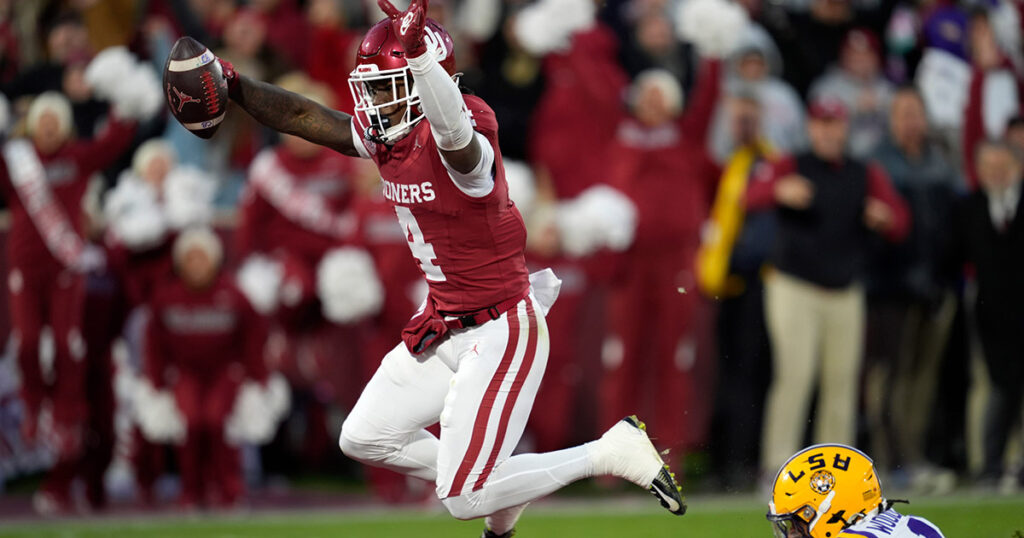
Date/Time: Nov. 29, 3:30 p.m. ET
Channel: ABC
Viewers: 6.4 million
Needing a win to continue its quest for a College Football Playoff berth, Oklahoma did just that in the late-afternoon window in Week 14. The Sooners took down LSU in Norman to put themselves in strong position in the 12-team bracket.
Ole Miss vs. Mississippi State
Date/Time: Nov. 28, Noon ET
Channel: ABC
Viewers: 5.2 million
All eyes were on the Egg Bowl as the Black Friday slate began as Ole Miss took down Mississippi State. It turned out to be the last game for Lane Kiffin as the Rebels’ head coach, and 5.2 million viewers were dialed in to watch.
Oregon vs. Washington
Date/Time: Nov. 29, 3:30 p.m. ET
Channel: CBS
Viewers: 4.3 million
In an old Pac-12 showdown, Oregon headed to Seattle for a late-afternoon matchup against Washington. The Ducks continued their strong season, taking down the Huskies in CBS’ Big Ten game – and the regular-season finale for analyst Gary Danielson.
Vanderbilt vs. Tennessee
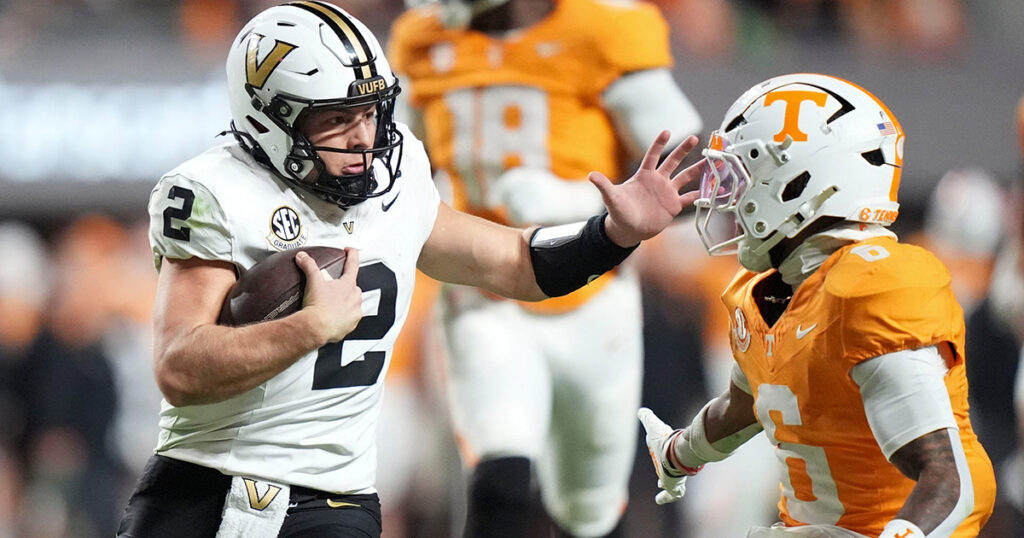
Date/Time: Nov. 29, 3:30 p.m. ET
Channel: ESPN
Viewers: 4.0 million
The Diego Pavia Show arrived on Rocky Top as Vanderbilt took down Tennessee. The electrifying Commodores quarterback continued to make his case for the Heisman Trophy and did so on the big stage with 4.0 million people tuned to ESPN.
Iowa vs. Nebraska
Date/Time: Nov. 28, 3:30 p.m. ET
Channel: CBS
Viewers: 3.8 million
A top Big Ten rivalry looked a bit different this year as both Iowa and Nebraska’s offenses showed out early. But the Hawkeyes kept their foot to the floor, taking down the Huskers 40-16 in one of the Top 10 most-watched games of Week 14.
Cincinnati vs. TCU
Date/Time: Nov. 29, 3:30 p.m. ET
Channel: FOX
Viewers: 2.74 million
Immediately following Michigan-Ohio State, TCU vs. Cincinnati also drew strong numbers for FOX. The Horned Frogs handed the Bearcats a fourth straight loss to end the season and get to the 8-win mark for the 2025 season.
- Indiana vs. Purdue (Nov. 28, 7:30 p.m. ET, NBC) – 2.69 million
- USC vs. UCLA (Nov. 29, 7:30 p.m. ET, NBC) – 2.2 million
With 11 games topping 10 million viewers this year, college football put together a huge year for TV ratings. Three of the Top 10 most-watched games of the regular season came in Week 14, and it’s now on to conference championships.
-

 Rec Sports2 weeks ago
Rec Sports2 weeks agoFirst Tee Winter Registration is open
-

 Rec Sports1 week ago
Rec Sports1 week agoFargo girl, 13, dies after collapsing during school basketball game – Grand Forks Herald
-

 Motorsports1 week ago
Motorsports1 week agoCPG Brands Like Allegra Are Betting on F1 for the First Time
-
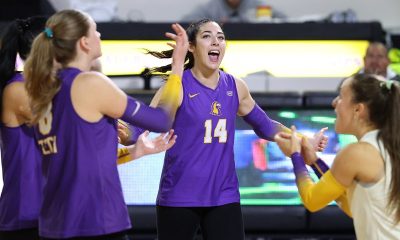
 Sports2 weeks ago
Sports2 weeks agoVolleyball Recaps – November 18
-

 Motorsports2 weeks ago
Motorsports2 weeks agoF1 Las Vegas: Verstappen win, Norris and Piastri DQ tighten 2025 title fight
-

 Sports1 week ago
Sports1 week agoTwo Pro Volleyball Leagues Serve Up Plans for Minnesota Teams
-

 Sports1 week ago
Sports1 week agoUtah State Announces 2025-26 Indoor Track & Field Schedule
-

 Sports1 week ago
Sports1 week agoSycamores unveil 2026 track and field schedule
-

 Sports1 week ago
Sports1 week agoTexas volleyball vs Kentucky game score: Live SEC tournament updates
-

 NIL5 days ago
NIL5 days agoBowl Projections: ESPN predicts 12-team College Football Playoff bracket, full bowl slate after Week 14






















































